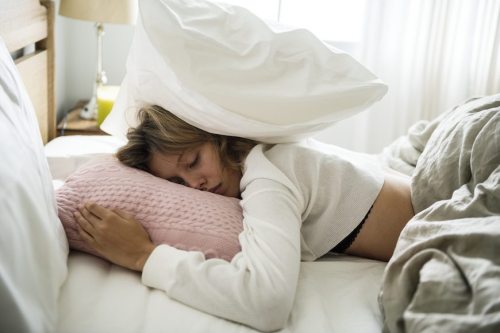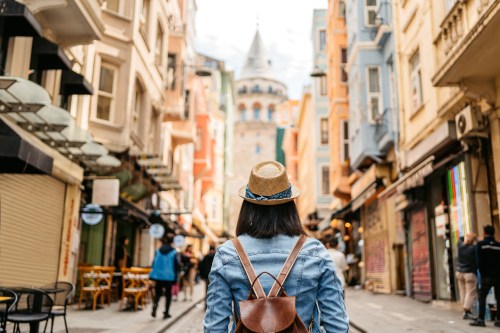If you’re anything like me, you used to be able to bounce back from a hangover with startling ease. When I was in college, I once even sluggishly completed a 10K in the rain following a full evening of beer pong. I was running (well, literally just walking) on just two hours of sleep and a coffee. Now if I have more than two glasses of wine one night, I’m almost guaranteed to be laid out in bed for at least half of the next day. So do hangovers get worse with age?
A quick Google search yields tons of evidence it’s not just me pining for the answer to this question. But if you’re looking for medical confirmation that your two-day hangover is age-related, you’re likely going to come up short. “The research seems lacking in this area,” says Monya De, MD, an internist in Los Angeles. “But age can affect the performance of the liver in making some drug-related metabolizing enzymes, which could explain the effect.” The longer those enzymes take to break down the alcohol, the longer the booze stays in your body. More alcohol, then, is absorbed into your body, which results in higher levels of intoxication and—you guessed it—worse hangovers.
While the idea that your liver gets more sluggish as you age seems to have legs, there isn’t evidence that points to exactly when the process starts. “The liver is self-cleaning to a certain extent, but if you overwork it, it can start to break down,” says periodontist and nutritionist Sanda Moldovan, DDS, who studies aging. “Hangovers also have a lot to do with lifestyle choices and the stress you put on your liver. You could also have a genetic predisposition that causes your liver to slow down earlier.” In fact, the research is so inconclusive that one study even found that the frequency of severe hangovers actually decreases with age. (Here’s to hoping that one pans, out—#amirite?)
“The liver is self-cleaning to a certain extent, but if you overwork it, it can start to break down.” —Sanda Moldovan, DDS, periodontist and nutritionist
But still, if you’re finding the hangovers persist longer and stronger than they used to, what gives? Is it that you’re drinking less often than you used to? If so, your tolerance may be lower, meaning a smaller amount of alcohol than before may be required to get you lit.
So that explains getting drunk…but the hangover? Perhaps life’s biggest mystery. Still, regardless of how old you are, there are some steps you can take to make sure your next happy hour doesn’t cut to you, 15 hours later, frantically scrolling your phone for a deli that’ll deliver you a egg sandwich.
First, Dr. Moldovan says to pay attention to the kinds of alcohol you’re drinking: Stick to clear alcohols, which contain fewer congeners (a chemical that results in the fermenting process), like methanol. Methanol is no good for next-day you because it breaks down into formic acid and formaldehyde, which has been connected to (but not scientifically proven to create) worse hangovers. Biodynamic wines tend to have less alcohol, which means that there’s less of a chance of a hangover, Dr. Moldovan says.
She also advises not to drink on an empty stomach. Instead, chow down on some complex carb and fibrous foods if you know you’re going to be imbibing. “Drinking on an empty stomach means that there’s nothing there absorb the alcohol, so your body absorbs most of it,” she says. “Having a full stomach helps to absorb the alcohol as you drink it, making your hangover much easier to tolerate.” But this only works if your stomach is full when you start drinking; that 2 a.m. slice of greasy pizza won’t do much to save you if the hooch is already absorbed into your body.
And when in doubt, just follow the healthy-ish drinking cardinal rule you already know: Consume as much water as you can. Dehydration is a super-common hangover cause. If you can remember, make sure to guzzle at least a cup or two of water before bed.
If all your best efforts end unsuccessfully, try an electrolyte-rich sports drink or some green tea, but avoid sugary soft drinks and coffee, which can dehydrate you further. And please, whatever you do, don’t reach for the hair of the dog. Another cocktail will only stave off your symptoms—not cure them. Plus, isn’t one of the benefits of age not repeating past mistakes?
One hangover cure you probably haven’t tried? Kudzu. And here’s what to know about vitamin drips—the IVs that can boost your health (and squelch your hangover).
Sign Up for Our Daily Newsletter
Get all the latest in wellness, trends, food, fitness, beauty, and more delivered right to your inbox.
Got it, you've been added to our email list.











